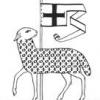I did some research on auto but I am still confused on how to output the elapsed variable to the screen. I am trying to cout the elapsed variable.
chrono::high_resolution_clock::time_point previous = chrono::high_resolution_clock::now();
auto timeStampPrevious = previous;
auto timeStampNow = chrono::high_resolution_clock::now();
auto elapsed = timeStampPrevious - timeStampNow;
cout << elapsed << endl;











